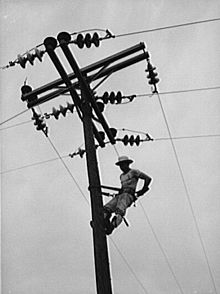
Lagos — Germany is set to help finance an upgrade of the Olkaria geothermal plant in Kenya. German Chancellor Olaf Scholz announced this during a visit to the geothermal plant last Saturday.
The German Chancellor launched an uprating project of Olkaria I Additional Unit 4, 5, and Olkaria IV geothermal power plants which are located about 120 kilometers northwest of Nairobi.
According to a statement from the Kenya Electricity Generating Company (KenGen). The project, which is expected to take 28 months, seeks to increase the capacity of two power stations from the current combined total of 300MW to 340MW. Chancellor Scholz noted that the plant is a strong expression of Kenya’s leadership in climate protection and a testimony of joint Kenya–Germany cooperation.
The Chancellor noted that Kenya and Germany have entered a climate and environment partnership to support Kenya in reaching a 100 percent renewable energy supply and also to support the country’s adaptation to climate change.
“I’m glad that we will continue our support by providing financing for an upgrade of the turbines of Olkaria,” said Scholz. “Geothermal power is an excellent basis for green hydrogen production that could be used for the local production of fertilizers allowing Kenya to establish new value chains,”
The Olkaria geothermal plant comprises six geothermal plants, the first of which was commissioned in 1981. The stations supply over 800MW to the Kenyan electricity grid, which is a large part of the country’s energy supply.
Last year, plant owner KenGen announced plans to increase the capacity of the turbines for the additional units 4 and 5 of the Olkaria I station and that of the Olkaria IV station. In March, Davis Chirchir, Kenya’s Cabinet Secretary for Energy and Petroleum announced that the EU has provided $46.6 million for the upgrade.
Germany has been a key supporter of geothermal energy in Kenya over the past two decades. The German development bank, KfW provided €70 million in co-financing for the expansion of the Olkaria I and IV power plants. The bank also co-financed the development of the first phase of the Baringo–Silali geothermal project. According to Davis Chirchir, the KfW provided about €80 million which financed the development of five wells in Baringo–Silali with a capacity of 45MW.
The Kenyan government plans to raise geothermal energy’s contribution to the total energy mix to about 60 percent by 2030. KenGen wants to invest about $2 billion in the development of four new plants.
According to the Ministry of Energy, exploration indicates that the country’s geothermal potential exceeds 10,000MW, enough to meet the country’s entire energy demand over the next two decades.
Kenya is the only African country with over 90 percent clean energy contribution to the energy mix.
Kenya is ranked at position seven globally in geothermal exploration and development, out of which over 90% is generated by KenGen. So far, the company has drilled more than 320 geothermal wells within the Olkaria field, establishing a robust, sustainable footprint in Kenya, according to a statement by the company.
The country plans to reach 100 percent carbon-free energy by 2030 and has earmarked expanding its geothermal capacity as essential to meeting this target.
Follow us on twitter



